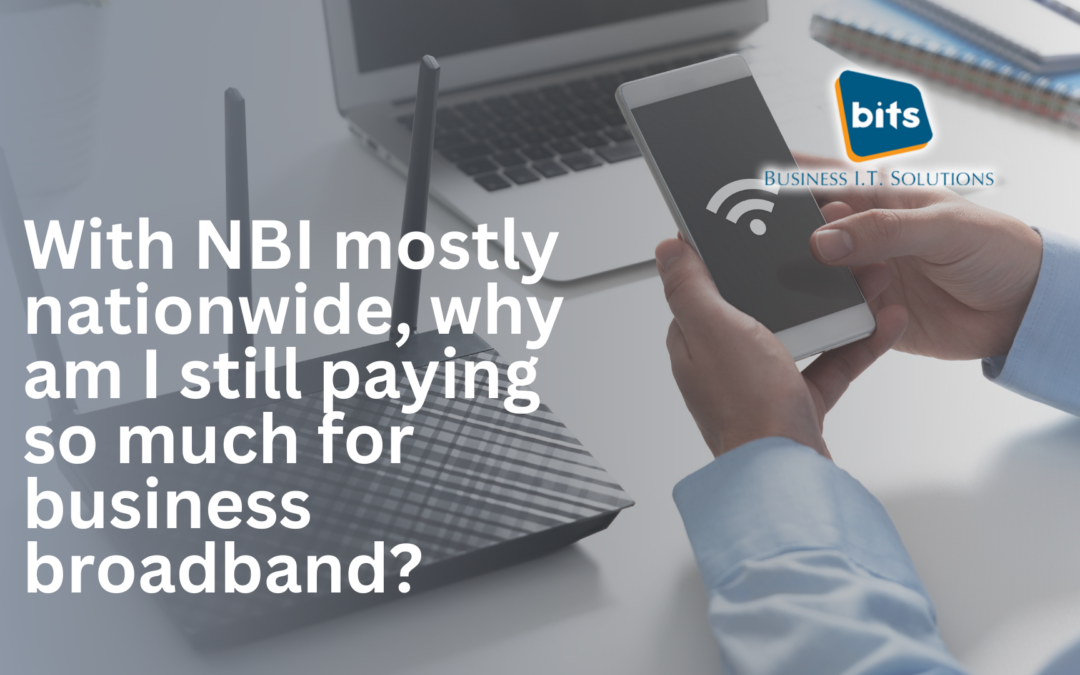The National Broadband Initiative (NBI) has brought significant improvements in broadband infrastructure across Ireland. Aimed at ensuring high-speed internet access for all, the initiative has been a game-changer for countless individuals and businesses. However, despite the widespread availability of broadband services, many business owners find themselves asking: Why am I still paying so much for business broadband?
In this blog, we will explore the factors contributing to the high cost of business broadband and what can be done to mitigate these expenses.
The Landscape of Business Broadband
To understand the costs associated with business broadband, it’s essential to differentiate between residential and business internet services. While the NBI has made strides in providing affordable internet for households, business broadband often comes with additional requirements and expectations that drive up the costs:
Reliability and Uptime:
Businesses rely heavily on continuous internet connectivity. Any downtime can result in significant financial losses. Business broadband packages often come with service level agreements (SLAs) that guarantee a certain level of uptime and provide compensation in case of outages. This increased reliability comes at a premium.
Fail-over Options:
In addition to stronger SLA’s, most business broadband solutions providers can also offer a failover service for the primary business broadband service. This means if the primary service goes down a secondary broadband service will seamlessly take over while the primary is being brought back on-line. These failover services can be as fast as the primary and that’s certainly prudent for essential organisations that depend on broadband. But, usually they are a slower service, sometimes over an LTE connection (mobile sim) but enough to get the business out of trouble by allowing essential services to continue such as email and VOIP. Any business using VOIP for telecoms should have a fail-over broadband service in place. Needless to say, this comes at a cost too.
Higher Speeds and Bandwidth:
Business operations often require higher speeds and greater bandwidth than residential services. Activities such as video conferencing, large file transfers, and operating cloud-based applications demand robust internet connections. Providers charge more for these enhanced capabilities.
Customer Support:
Business broadband customers typically receive priority customer support. This means faster response times and dedicated support teams, which add to the overall cost.
Security and Additional Services:
Many business broadband packages include enhanced security features to protect against cyber threats. These can include firewalls, VPNs, and other cybersecurity measures. Additional services such as static IP addresses and web hosting are also often bundled, increasing the overall price.
Why Costs Remain High Despite the NBI
The NBI’s focus has primarily been on expanding coverage and improving basic broadband access, especially in underserved and rural areas. However, several factors contribute to the continued high costs of business broadband:
Infrastructure Investment:
Building and maintaining the infrastructure required to support high-speed, reliable business broadband is expensive. The costs of fibre optic cables, network equipment, and ongoing maintenance are significant and are passed on to consumers.
Market Competition:
In many areas, there may be limited competition among broadband providers. A lack of competition can lead to higher prices, as there is less incentive for providers to lower costs. Even with the NBI’s efforts, some regions still have few options for business broadband.
Specialised Needs:
Businesses often have unique and demanding requirements that go beyond what is provided in standard residential packages. Custom solutions tailored to these needs come at a higher cost.
Regulatory and Compliance Costs:
Internet service providers must comply with various regulations and standards, which can be more stringent for business services. These compliance costs are often reflected in the pricing of business broadband.
Steps to Reduce Business Broadband Costs
Despite the inherent costs, there are steps businesses can take to potentially reduce broadband expenses:
Assess Needs Accurately:
Conduct a thorough assessment of your business’s internet needs. You might be paying for more speed or bandwidth than necessary. Tailoring your package to match your actual usage can save money.
Leverage NBI Programs:
Look into any specific programs or subsidies offered by the NBI for businesses. These programs are designed to reduce costs and improve access to high-speed internet.
Monitor Usage and Adjust Accordingly:
Regularly monitor your internet usage and adjust your plan as needed. Downgrading to a lower-speed package during off-peak seasons or upgrading only when necessary can lead to savings.
While the NBI has significantly improved the broadband landscape, the cost of business broadband remains high due to various factors including infrastructure investments, market competition, and the specialised needs of businesses.
Internet connectivity is essential for your business. Without it, client communication halts, and your operations could be severely impacted. Unlike most competitors, at BITS, we don’t consider this merely a transaction between you and the internet service provider. We understand that when issues arise, you need prompt, expert technical support to resolve them quickly.
We have teamed up with internet service providers to offer you a comprehensive, all-in-one solution for your IT needs. Through these collaborations, we can supply you with an internet connection and handle any issues that arise by coordinating directly with the provider to ensure they are resolved.
Looking for more information? Get in touch.

